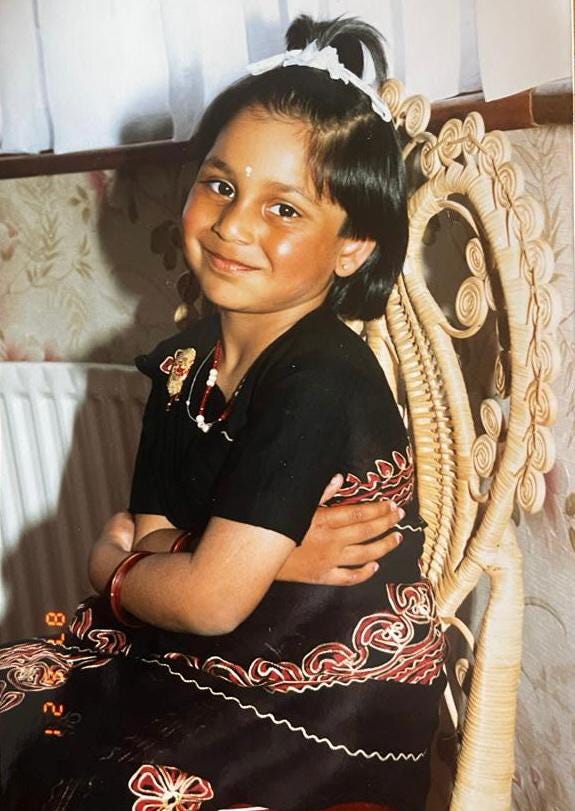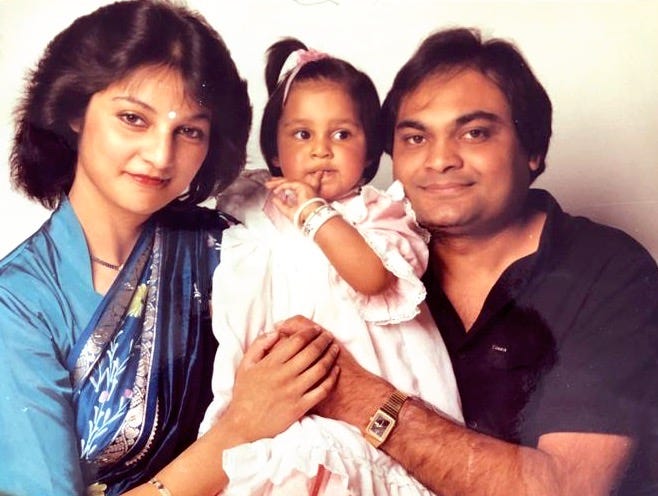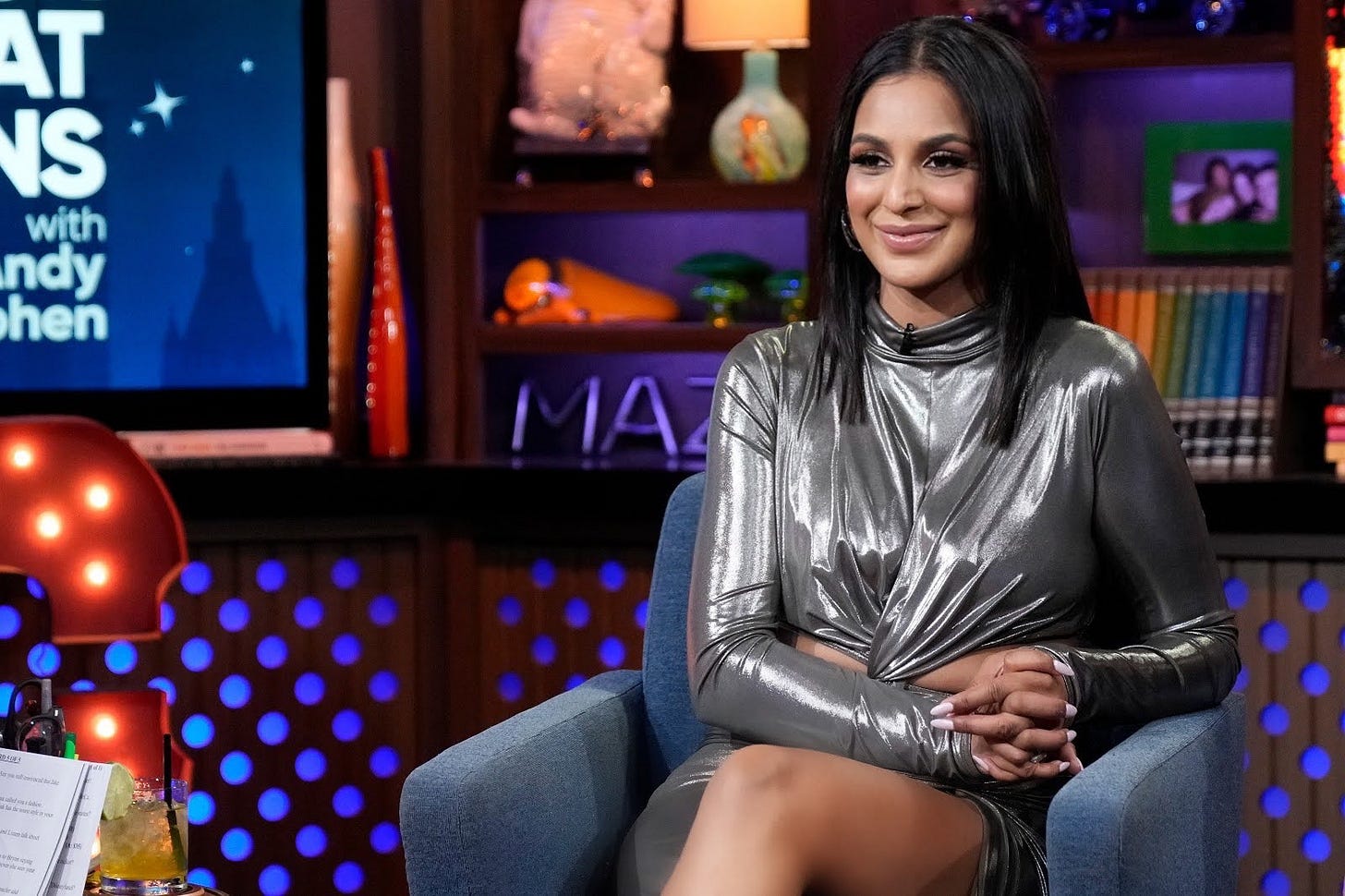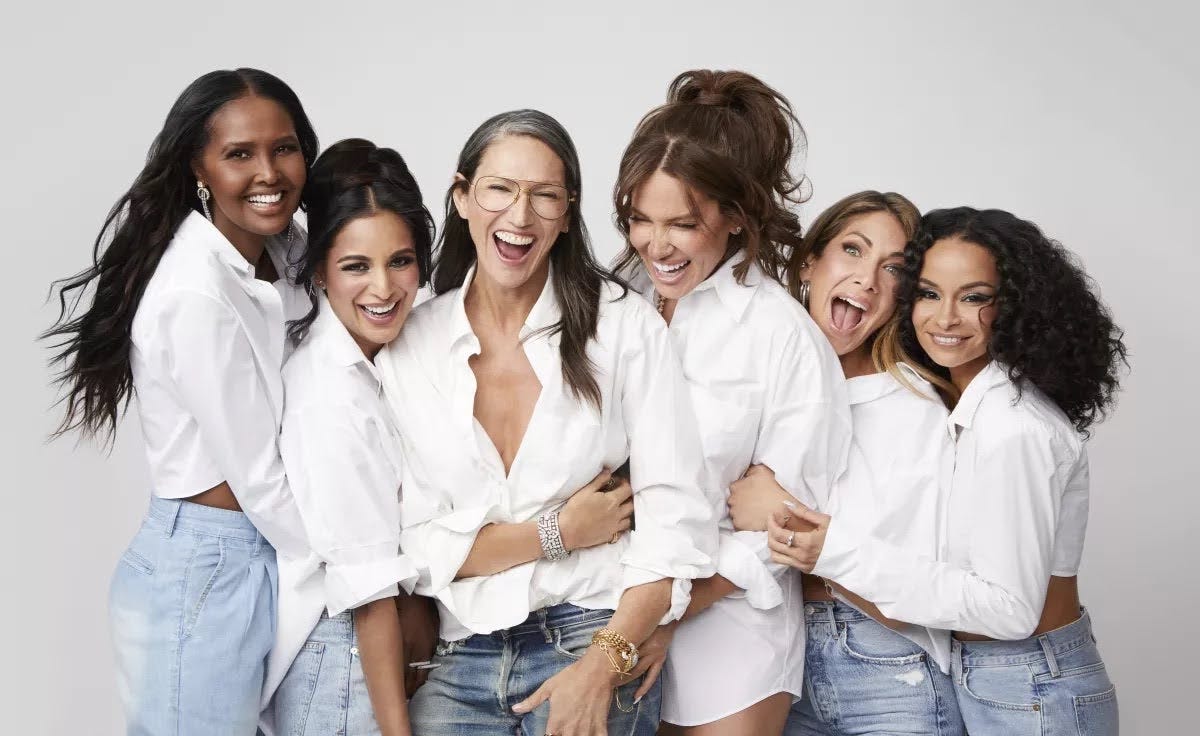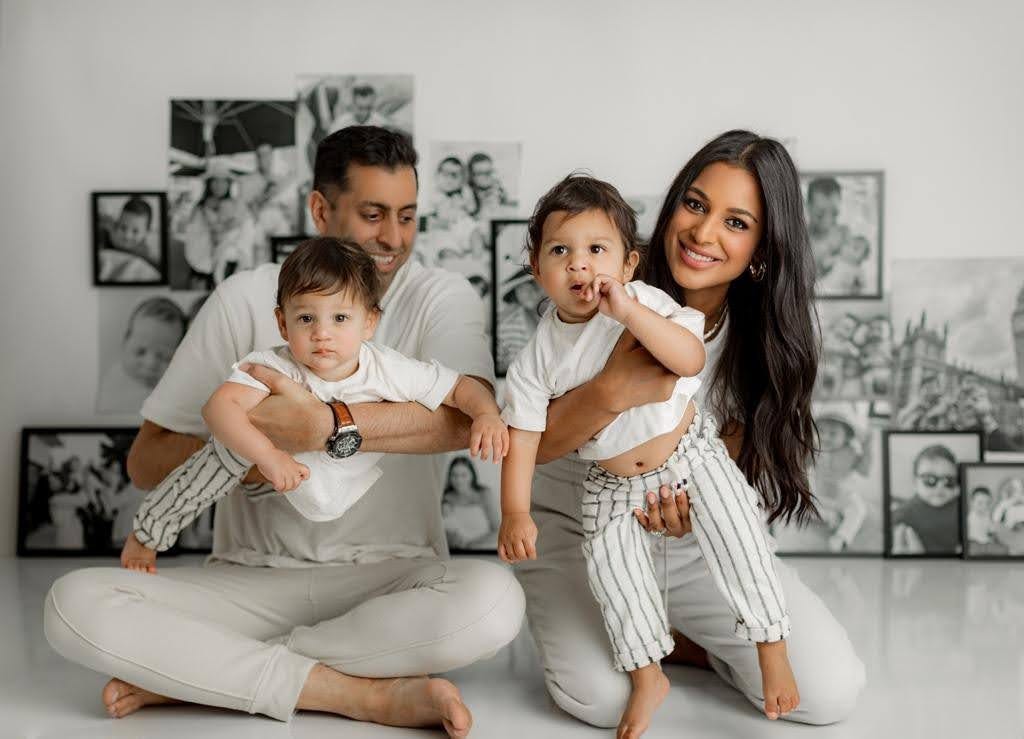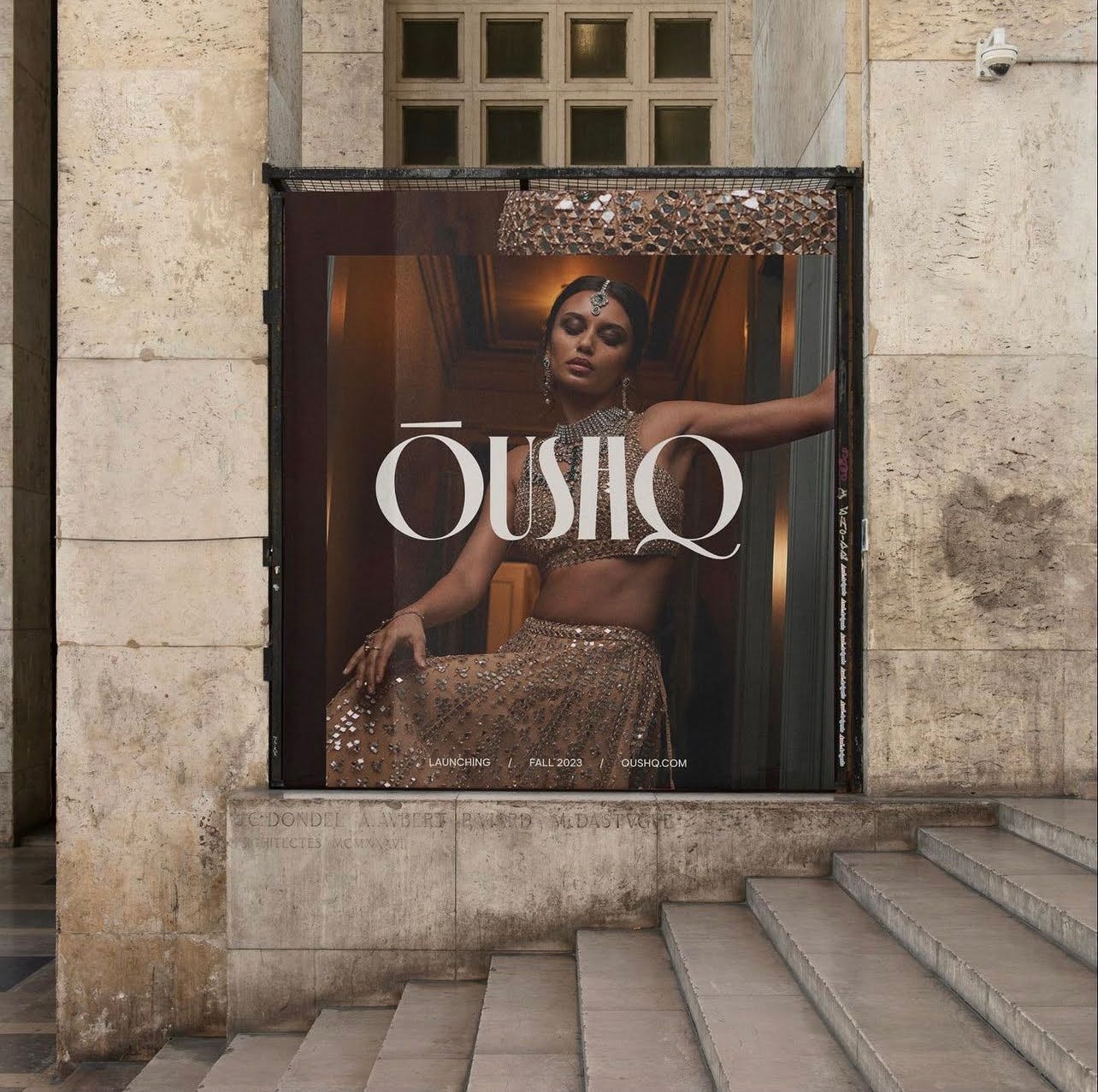Jessel Taank ("Real Housewives of New York") Breaking Barriers on Bravo | Renegades
Journeying across the Pond to disrupt fashion and reality television
Jessel Taank
PR Maven, Entrepreneur, Real Housewife
Oushq
Welcome to Renegades, a series spotlighting Asian Pacific leaders and creatives who are carving their own paths and defying stereotypes along the way.
This week, we spotlight Jessel Taank, whose journey weaves dreams, resilience, and creativity. From envisioning a horse stable and singing career as a child to her current role in fashion, Jessel's path reflects her spirit and storytelling love. Her family's UK move from Kenya due to unrest fueled her cultural appreciation and determination. As Oushq's visionary, she empowers designers, bridges cultures, and fosters industry inclusivity. Jessel's trailblazing as the first South Asian Real Housewife showcases her authenticity and ability to overcome challenges, embodying the fusion of dreams and empowerment.
What did you want to be when you were growing up, and how does that compare to what you do today?
As a child I had several wild ambitions! I envisioned running a horse stable, (My fascination with horses was so bizarre back then!) aspiring to be a a singer (I was captivated with Michael Jackson) and even daring to dream of becoming a supermodel. I spent hours watching Fashion TV, awestruck by icons like Naomi Campbell and Cindy Crawford, who exuded elegance as they paraded down runways in couture.
I was a dreamer who possessed a creative spirit and had a penchant for the art of storytelling, but at time didn’t know how to channel this. I fell into the career trap that inherently comes with being Indian and started to explore law - I knew it would make my parents proud! After a few internships I realised I couldn’t handle how sterile it was and ultimately knew I needed to do something that embraced my creativity and love for writing. I finally found this balance in fashion PR.
Your family's history involves displacement from Kenya to the UK due to political unrest. How has this background impacted your identity and your approach to new opportunities and challenges?
It was referred to as the ‘Mass exodus of Asians’ and my family were amongst many that were displaced and had to navigate cultural differences, overcome language barriers and adjust to a different way of life in the UK. My parents didn’t have the luxury of pursuing an education, they were thrown into the workforce to help support their families and had to withstand a wave of discrimination and microaggression on the daily.
Although the scale of all this weighed heavily on my upbringing, with hindsight, I realize it has molded my viewpoint and perspective on life in various positive ways. Watching their strength and perseverance – never giving up to create a life for my brother and I is something that I will always be in awe of- they were relentless.I’ve learnt to never take no for an answer and know that success is simply a result of hard work- no one can ever strip you of your accolades. I’m also very thankful for the unique blend of cultural heritage I possess, formed from an amalgamation of languages, traditions, values, experiences and an unmatched emphasis on personal merit through work.
Tell us about your journey from London to New York, then Los Angeles, and back to New York? How have these different locations shaped your experiences on South Asian representation?
I left London for NY in 2006 for a two-week internship at Conde Nast and got sucked in- NY does that to you! I didn’t really have a solid plan, but I did know this was my one chance to truly hustle and create the life I always dreamed of. When Pavit and I met, there were always talks of potentially moving to LA to be closer to his family and we did a short stint there, but NY was always where we were rooted. I love how in NY, you so easily meet people from different walks of life and are exposed to a multitude of experiences – it’s what I thrive on and what essentially helps me gain perspective.
I do think South Asian representation in the US has been slow on the uptick but that’s quickly changing. We’re typically the people behind the scenes making it all happen but more and more South Asians are being seen front of house and the world is starting to pay attention. I’m so proud to be a part of this community and culture- we have a richness that’s raw and rare.
You’ve worked in fashion PR at Michael Kors and created Oushq, a platform for South Asian clothing. What inspired this venture, and what’s the potential impact on the fashion industry?
My Mum is the inspiration behind Oushq. As a small girl, growing up middle class in the 80’s in outskirts of London, being Indian was a flaw, an afterthought, we were a minority. I experienced my immediate family changing their names to assimilate, my Mother went from Nilam to Nicky and I remember distinctly how we struggled with identity but also how my Mother managed to blend her fashion sensibility so seamlessly between the two cultures. She taught me how to embrace Indian fashion in a way that was so unique but also that made sense in the world we lived and through those life learnings, I always dreamt of giving the same gift to as many people as possible. Enter Oushq.
The goal is to open doors to untapped, undiscovered Designers and provide a platform whereby they can showcase their creations to an audience that they would otherwise not be able to reach. I believe ultimately, this will be a game changer for rising talent in the industry.
As a digitally immersive retail experience, Oushq could serve as a tool to foster inclusivity among South Asian countries and designers. What’s your vision in showcasing Indian fashion, and would that extend to featuring designers from Pakistan, Nepal, and Bangladesh?
Indian fashion deserves to be celebrated in the same way European fashion is- the level of workmanship and intricacy that goes into these collections is largely overlooked.
The mission is to create a digital space where talent from every corner of South Asia can shine, fostering understanding, appreciation, and collaboration. This not only enriches the overall fashion landscape but also contributes to a broader narrative of cultural connectivity and shared experience.
Oushq is a platform that strives to break down barriers and celebrate diversity, we hope to shape a future where the fashion industry truly reflects the collective brilliance of our region.
Outside of fashion, you’re also recognized as the first South Asian Real Housewife and have faced negativity and hatred. How have you dealt with these challenges?
Reality TV is a flash fry into someone’s life – I liken it to a close- up of a mouse’s tail but when you zoom out it’s actually an elephant- the scale and context is skewed. I didn’t fully comprehend the meaning of having ‘thick skin; until the show started to air- luckily I’m very confident in who I am and my relationships – enough so, that I’m able to really block out the noise and focus on what matters.
Reality television often showcases personal moments and emotions. How do you balance sharing your personal life on Real Housewives of New York while also maintaining your privacy and boundaries?
When I signed up for RHONY, I committed to sharing a decent amount of personal moments i.e. IVF journey and struggles post-partum but I had a very clear agenda in doing so. In our culture, I think there is a an almost stifling perception that you must be this perfect woman, someone who isnt phased when life doesn’t go to plan and I wanted to challenge that notion. Reality TV really encourages the rawness of real life to be shown, more so than Instagram where things are filtered, curated and edited. I knew that this was an opportunity to really speak to the challenges I faced over the past few years in the hopes that maybe it touches someone and dispels the idea of perfect over real!
You've been open about your difficult journey with IVF. How has this experience shaped your outlook on life, and what advice do you have for others going through similar challenges?
I was one of those people that thought she would blink and get pregnant so you can imagine the frustration I felt when things weren’t necessarily going my way. Looking back, the biggest learning curve was patience. I was always such a control freak and needed everything to happen on my terms and my timeline. During the three years and numerous IVF rounds, I learnt to step back, be patient, stay calm and trust the process- it was out of my hands. I think that’s the biggest take away- to channel positivity, stay centred and the rest will take its course.
What are you currently working on that’s exciting you the most?
My focus right now is 100% on OUSHQ! I know that I have the building blocks to create something unique, special and really make my mark on the industry and in the South Asian community.
Lightning Round
Daily habit
I call my parents every day- be it for 2 minutes or an hour to check in and say hi. The twins usually have a nonsensical conversation with them too – I know it seems like a small feat, but they are the grounding force that always helps put my day into perspective.Most productive time of day
My day usually starts at 7pm when the twins fall asleep! I usually get most of my work done in the evenings – they are so high energy that it’s impossible to focus during the day!Favorite Fashion Era
The 90’s supermodel era of Naomi Campbell, Helena Christensen, Claudia Schiffer etc. Fashion during this time was a true expression of over the top glamNew York or London
New York, but London will have my heart!Favorite Housewives Franchise
Come on! The Real Housewives of New York ☺




